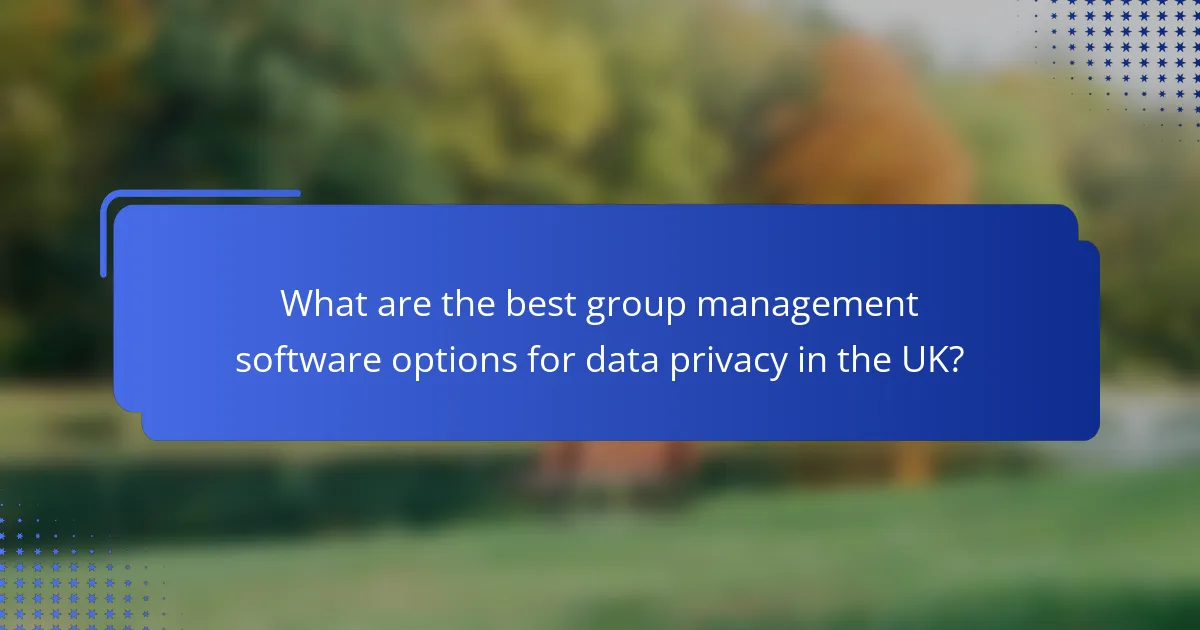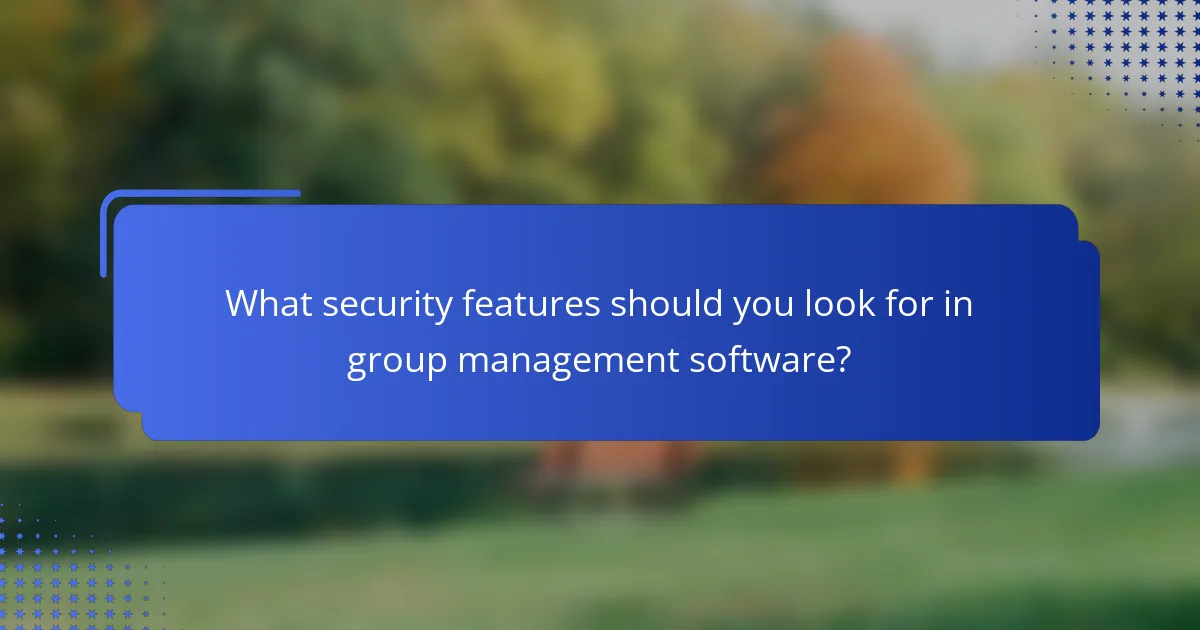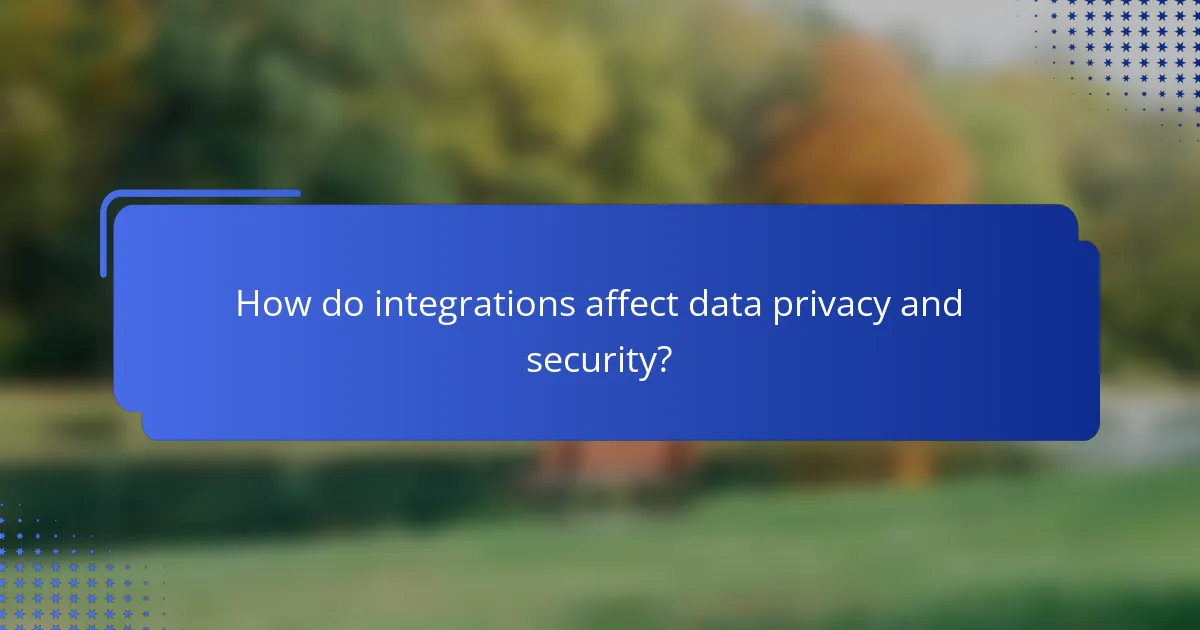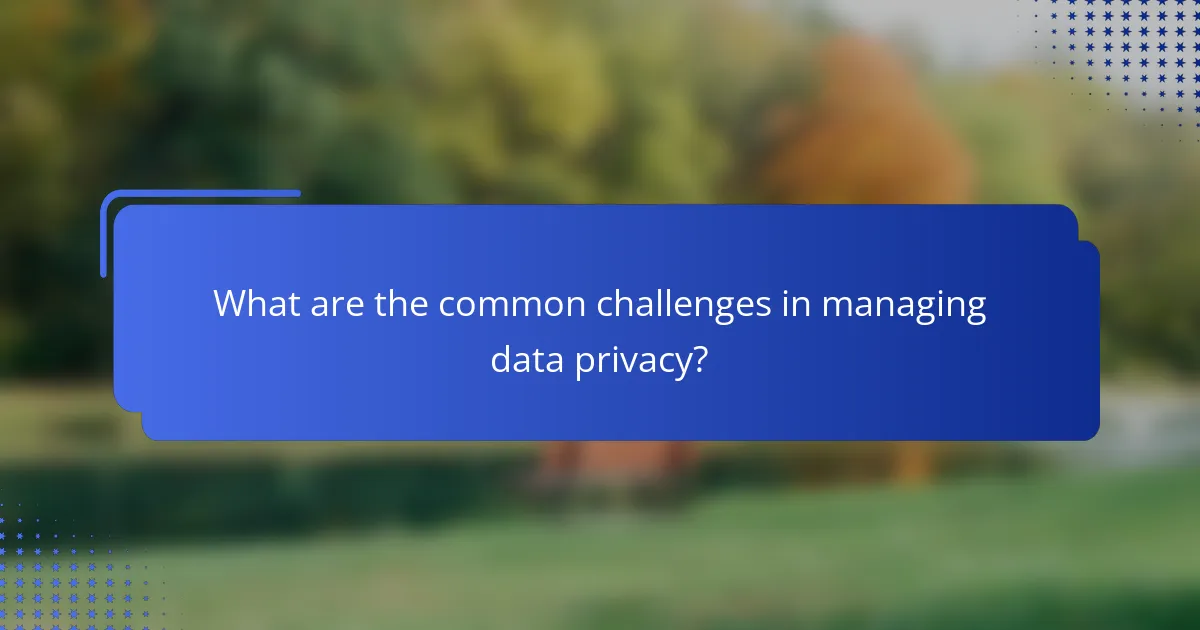Choosing the right group management software is crucial for ensuring data privacy and compliance with regulations like GDPR. Solutions such as Microsoft 365, Asana, and Slack not only offer robust security features but also include essential functionalities for managing personal data and user rights. Prioritizing tools with end-to-end encryption, multi-factor authentication, and secure data storage can significantly enhance your organization’s data protection efforts.

What are the best group management software options for data privacy in the UK?
In the UK, the best group management software options for data privacy prioritize compliance with regulations like GDPR while offering robust security features. Solutions such as Microsoft 365, Asana, and Slack provide tools to help organizations manage data securely and maintain privacy standards.
Microsoft 365 Compliance Center
Microsoft 365 Compliance Center is designed to help organizations in the UK manage compliance with data protection regulations. It offers features like data loss prevention, information governance, and compliance score assessments, which help identify and mitigate risks associated with data handling.
Users can set up policies to automatically protect sensitive information, such as personal data or financial records, ensuring that compliance requirements are met. The platform also provides audit logs and reporting tools to track compliance efforts effectively.
Asana Data Protection Features
Asana includes several data protection features that align with UK data privacy laws. It offers customizable permissions, allowing administrators to control access to sensitive project information and tasks. This ensures that only authorized users can view or edit critical data.
Additionally, Asana’s data encryption both in transit and at rest helps safeguard information from unauthorized access. Regular security audits and compliance certifications further enhance its reliability for organizations concerned about data privacy.
Slack Security Protocols
Slack implements strong security protocols to protect user data and ensure compliance with UK regulations. Features such as enterprise key management and two-factor authentication provide layers of security that help prevent unauthorized access to sensitive communications.
Slack also offers compliance certifications and tools for data retention and export, making it easier for organizations to manage their data in accordance with legal requirements. Regular updates and security assessments ensure that the platform remains secure against emerging threats.

How do group management tools ensure compliance with GDPR?
Group management tools ensure compliance with GDPR by incorporating features that protect personal data and facilitate user rights. These tools often include functionalities for data access, consent management, and secure data storage, which are essential for adhering to GDPR regulations.
Built-in GDPR Compliance Features
Many group management tools come equipped with built-in GDPR compliance features that help organizations manage personal data responsibly. Common features include user consent tracking, data encryption, and automated data deletion protocols. These functionalities ensure that organizations can demonstrate compliance during audits and protect user privacy effectively.
For example, tools may offer dashboards that display consent status for each user, allowing administrators to easily manage and update permissions. Additionally, automated reminders for data retention policies can help organizations avoid retaining personal data longer than necessary.
Data Processing Agreements
Data Processing Agreements (DPAs) are crucial for ensuring compliance with GDPR when using group management tools. A DPA outlines the responsibilities of both the data processor and the data controller, detailing how personal data will be handled, stored, and protected. Organizations should ensure that their group management software providers offer a clear and comprehensive DPA.
When evaluating a DPA, look for clauses that address data security measures, breach notification procedures, and the rights of data subjects. It’s essential to review these agreements carefully to ensure they align with GDPR requirements and adequately protect user data.

What security features should you look for in group management software?
When selecting group management software, prioritize security features that protect sensitive data and ensure compliance with regulations. Key features include end-to-end encryption, multi-factor authentication, and regular security audits, which collectively enhance the overall security posture of the software.
End-to-End Encryption
End-to-end encryption (E2EE) ensures that data is encrypted on the sender’s device and only decrypted on the recipient’s device, preventing unauthorized access during transmission. This feature is crucial for safeguarding sensitive information shared within groups, such as personal details or financial data.
When evaluating E2EE, consider whether the software uses strong encryption standards, such as AES-256. Additionally, check if the encryption keys are managed securely and if users have control over their keys to enhance privacy.
Multi-Factor Authentication
Multi-factor authentication (MFA) adds an extra layer of security by requiring users to provide two or more verification factors to gain access. This significantly reduces the risk of unauthorized access, even if a password is compromised.
Look for group management software that supports various MFA methods, such as SMS codes, authenticator apps, or biometric verification. Implementing MFA can be a straightforward process, but ensure that it is user-friendly to encourage adoption among team members.
Regular Security Audits
Regular security audits are essential for identifying vulnerabilities and ensuring compliance with security standards. These audits assess the software’s security measures, data handling practices, and overall risk management strategies.
Choose software that undergoes frequent third-party audits and provides transparency about their findings. Additionally, consider whether the software has a history of addressing vulnerabilities promptly and effectively, as this reflects their commitment to security.

How do integrations affect data privacy and security?
Integrations can significantly impact data privacy and security by introducing new vulnerabilities and compliance challenges. When connecting group management software with third-party applications, it is crucial to assess how these integrations handle sensitive data and adhere to relevant regulations.
Third-Party Integration Risks
Third-party integrations can expose your organization to various risks, including data breaches and unauthorized access. Each additional connection increases the number of potential entry points for cyber threats, making it essential to evaluate the security practices of all integrated services.
Common risks include inadequate data encryption, poor access controls, and lack of compliance with privacy regulations like GDPR or CCPA. Organizations should conduct thorough due diligence on third-party providers to ensure they meet your security standards and legal obligations.
API Security Measures
Implementing robust API security measures is vital to protect data during integrations. This includes using strong authentication methods, such as OAuth, and ensuring that all data transmitted via APIs is encrypted using protocols like TLS.
Regularly monitoring API usage and implementing rate limiting can help prevent abuse and mitigate risks. Additionally, conducting security audits and penetration testing on APIs can identify vulnerabilities before they can be exploited.

What are the key attributes of effective group management software?
Effective group management software should prioritize user access controls, data encryption standards, and compliance with relevant regulations. These attributes ensure that sensitive information is protected while allowing authorized users to collaborate efficiently.
User Access Controls
User access controls are essential for managing who can view or edit information within group management software. Implementing role-based access allows administrators to assign permissions based on user roles, ensuring that only authorized personnel can access sensitive data.
Consider using multi-factor authentication (MFA) to enhance security further. MFA adds an additional layer of protection by requiring users to provide two or more verification factors, significantly reducing the risk of unauthorized access.
Data Encryption Standards
Data encryption standards are crucial for safeguarding information both at rest and in transit. Effective group management software should utilize strong encryption protocols, such as AES-256, to protect sensitive data from potential breaches.
When evaluating software, check if it complies with industry standards like GDPR or HIPAA, which mandate specific encryption requirements. Regularly updating encryption methods and conducting security audits can help maintain data integrity and compliance.

What are the common challenges in managing data privacy?
Managing data privacy involves navigating various challenges, including ensuring compliance with regulations, safeguarding sensitive information, and maintaining user trust. Organizations must address these issues to protect data and avoid penalties.
Data Breach Risks
Data breaches pose significant risks to organizations, often resulting in financial loss and reputational damage. Common causes include hacking, insider threats, and inadequate security measures. Organizations should regularly assess their security protocols to identify vulnerabilities.
To mitigate data breach risks, implement strong encryption methods, conduct routine security audits, and ensure that software is up-to-date. Consider adopting multi-factor authentication to add an extra layer of security for sensitive data access.
User Training and Awareness
User training is crucial for effective data privacy management. Employees must understand the importance of data protection and be aware of potential threats such as phishing attacks. Regular training sessions can help reinforce best practices and keep security top-of-mind.
Develop a comprehensive training program that includes practical examples and scenarios relevant to your organization. Encourage a culture of security by promoting open communication about data privacy concerns and reporting suspicious activities.
